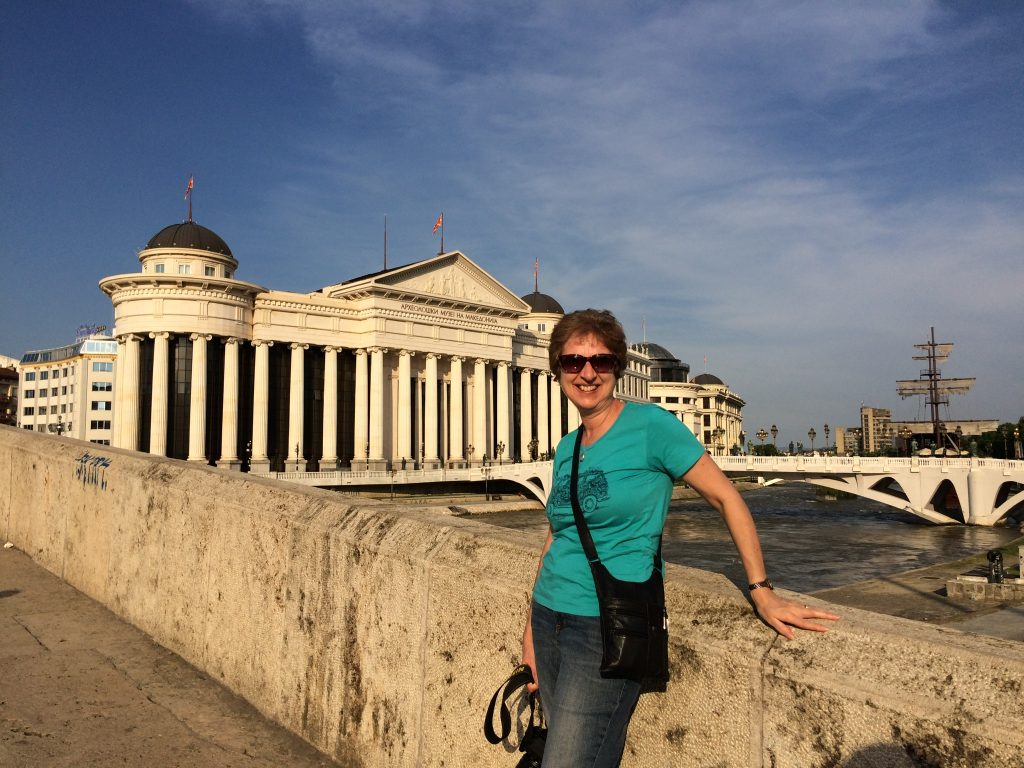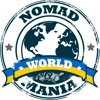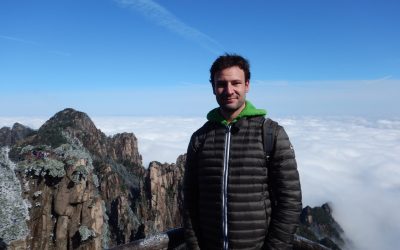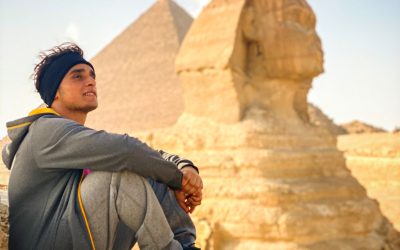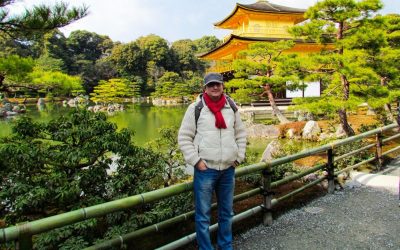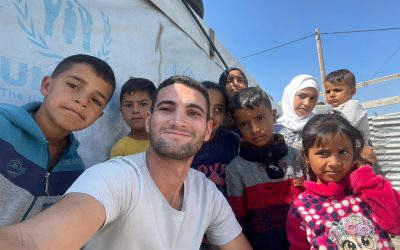Janet Simcock is a passionate traveller with an insatiable appetite for exploration and a love for photography. Growing up during the Troubles in Belfast, Northern Ireland, family holidays to beautiful beaches and travels to Switzerland sparked an early desire to see the world. With a deep curiosity for the unknown, an appreciation for culture and diversity, and a love for people, Janet believes that the gene for wanderlust is pre-programmed in some of us.
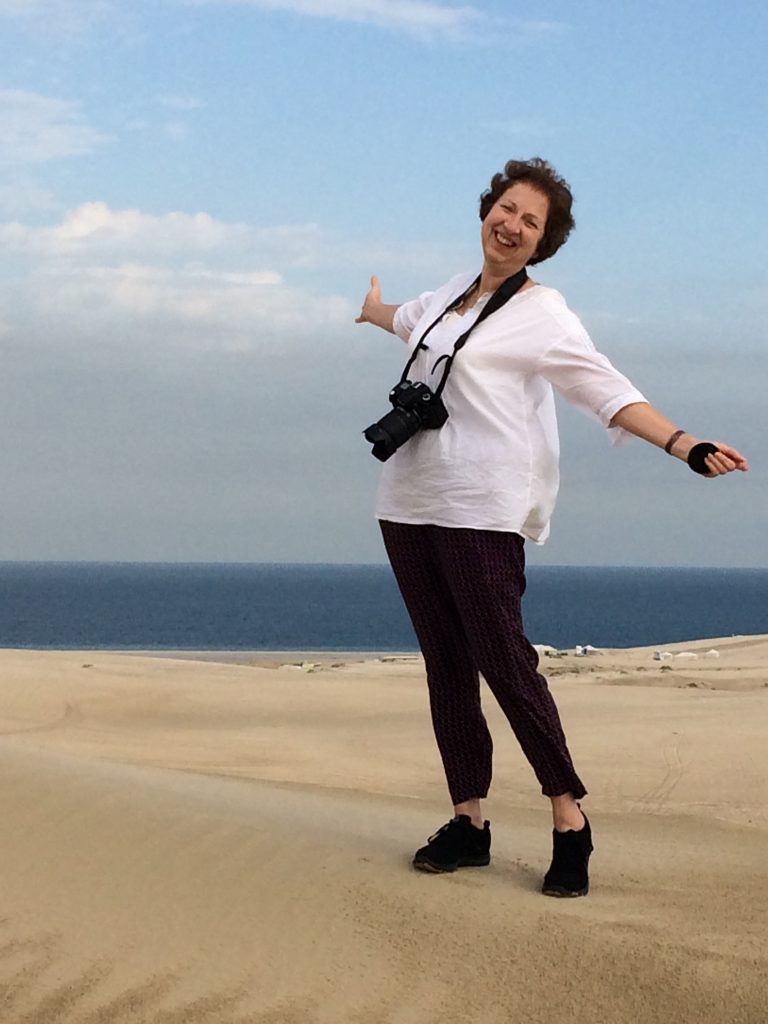
Janet, please tell us something about yourself, your early days and your first trips. How did your travelling “career” really begin?
I was born in Belfast, N. Ireland and grew up during ‘The Troubles’ there. Our early family holidays were usually to my aunt’s caravan on the beautiful beaches of the north coast. Later we graduated across to Scotland & even more exciting, the south of England! My first trip aboard aged 10 was a school trip to Interlaken, Switzerland, which seemed very exotic.
I remember having a small map of Europe which I studied avidly. My uncle from Canada visited every year & I looked forward to the goody bag of touristy junk he always brought. At some point, I acquired a post card of Table Mountain, Cape Town & promised myself I would go there one day (I still have the postcard but haven’t got there yet, hopefully, this December that dream will finally be fulfilled).
All these seeds have contributed to my appetite for travel but I firmly believe that there’s some gene that preprograms some of us with a compulsion to wander.
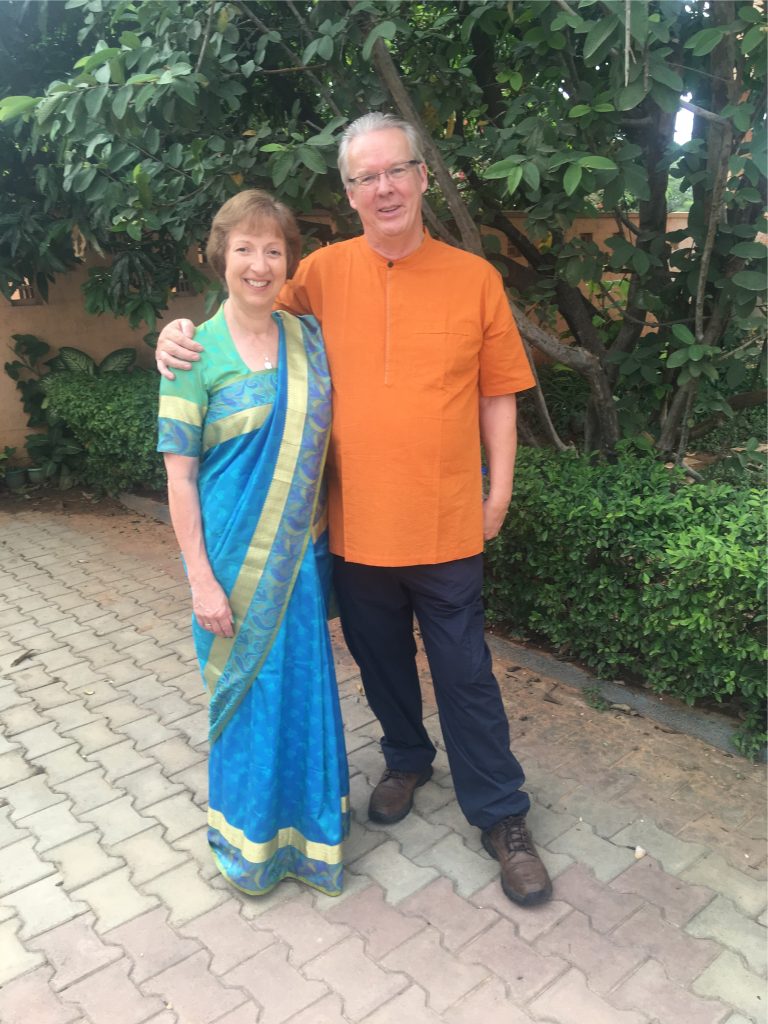
What are the most interesting and exclusive things to pay attention to travellers?
Photography is one of my passions and I try to capture the essence of a place in the images that I am seeing. Often it is the smaller details that catch my attention. I love the human face in all its diversity. I am drawn to art, colour and textiles. I take time to observe the natural light and how it plays with architecture and landscape.
(I don’t tend to photograph myself much so have struggled a bit with the brief to supply pictures of me in different locations).
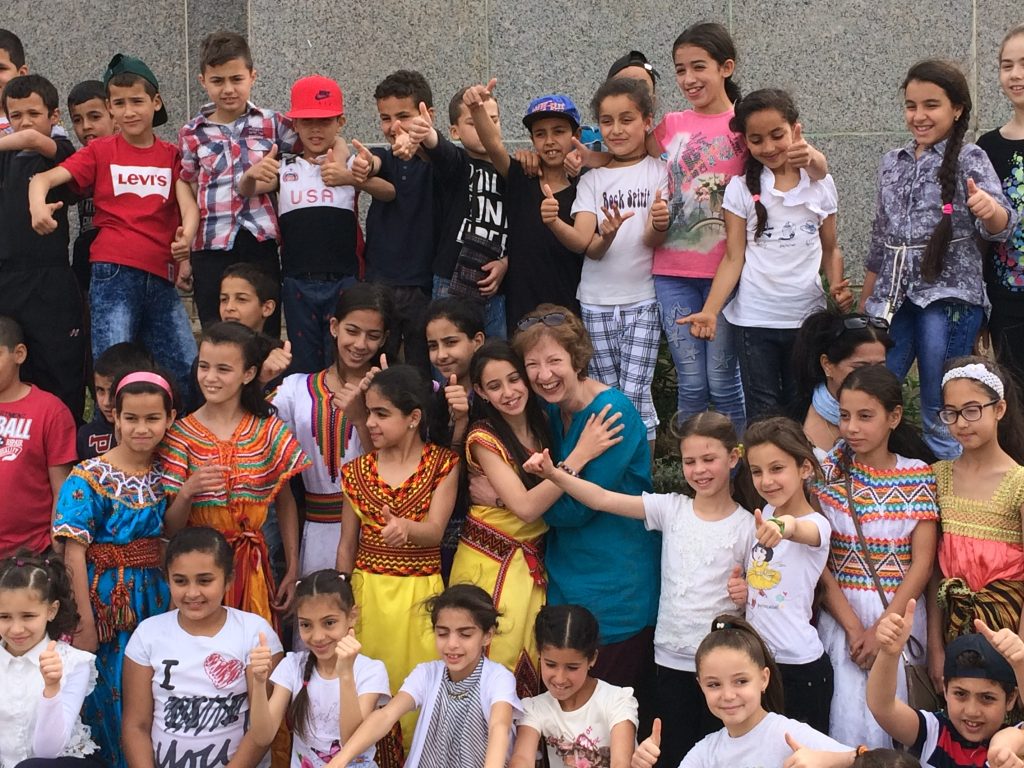
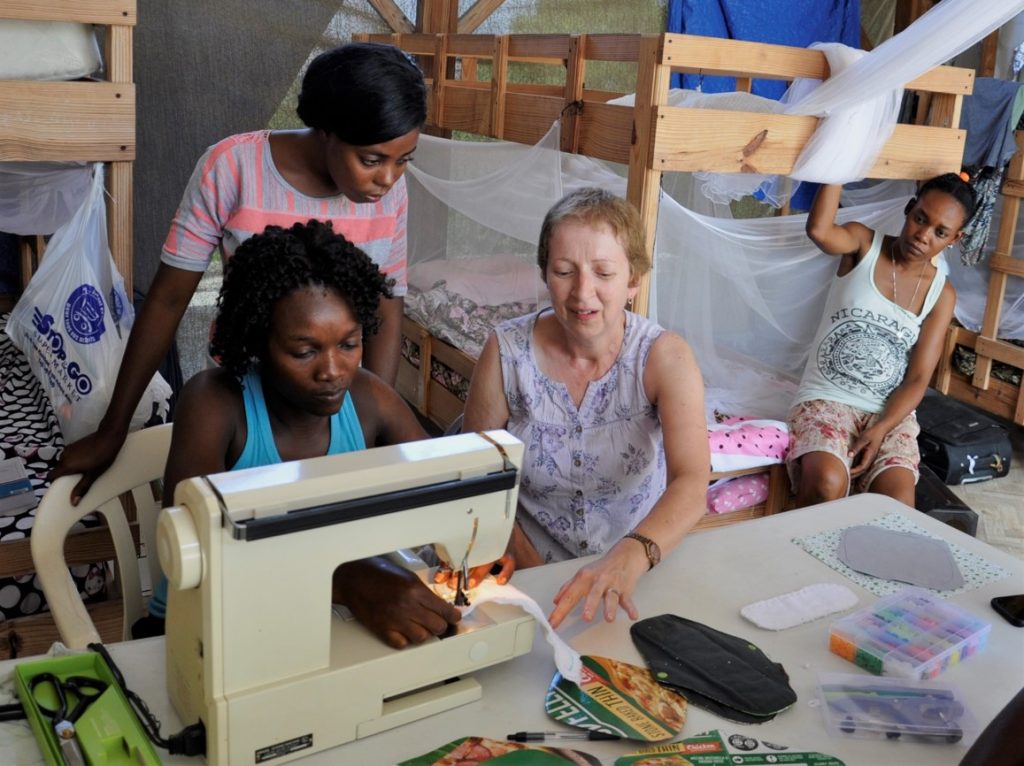
Which traits of character help and interfere with you while travelling? Tell us about your personal travelling style, please.
To be a world traveller I think you must be eternally curious about what might be around the next corner. You need to love people and never tire of listening to their individual stories. You must be prepared to have your opinions and priorities challenged, to be moulded by your experiences.
I started with backpacking on virtually no budget in the days without mobile phones & internet. Things weren’t booked ahead and you had to go with the flow & see what happened. I plan more now for the sake of efficiency but still like to incorporate elements of the unplanned & time to wander. I don’t like to spend much on accommodation preferring to stay in Airbnb or a hostel & rather spend on unique experiences. I am a bit of an adrenaline junkie and foodie.
Whilst in the Middle East I had my baggage stolen leaving me with the clothes I was wearing, my camera, passport & money. I bought a pair of shorts, a couple of tee-shirts & underwear and loved the freedom of not having loads of stuff. I have travelled light ever since.
I use ethical adventure group travel in places where it’s more difficult to travel independently with limited time. It’s also great for meeting like-minded travellers. I like the variety of road trips or tours and rarely spend too long in one place. I can’t imagine ever going on a cruise (other than to Antarctica)
When my two sons were growing up we did home exchanging as a family. We loved living like locals in a real home. This took us all over Europe, the USA, Iceland and Sydney for The Olympics 2000.
I am a committed Christian and strongly believe in travelling with the purpose to enhance and positively contribute to the cultures that we visit. I led teams of volunteers on trips to India for about 12 years. Other projects include women’s healthcare training in Egypt, running a spiritual spa during a trauma counselling conference for women from across North Africa & Middle East and initiating a menstrual hygiene project in Haiti. I am especially passionate about empowering women.
Recently I retired from full-time work as a pharmacist and now aim to fit work (minimal) around travel rather than the other way around. I hope to get involved in more humanitarian and voluntary projects as well as ticking off lots more countries.
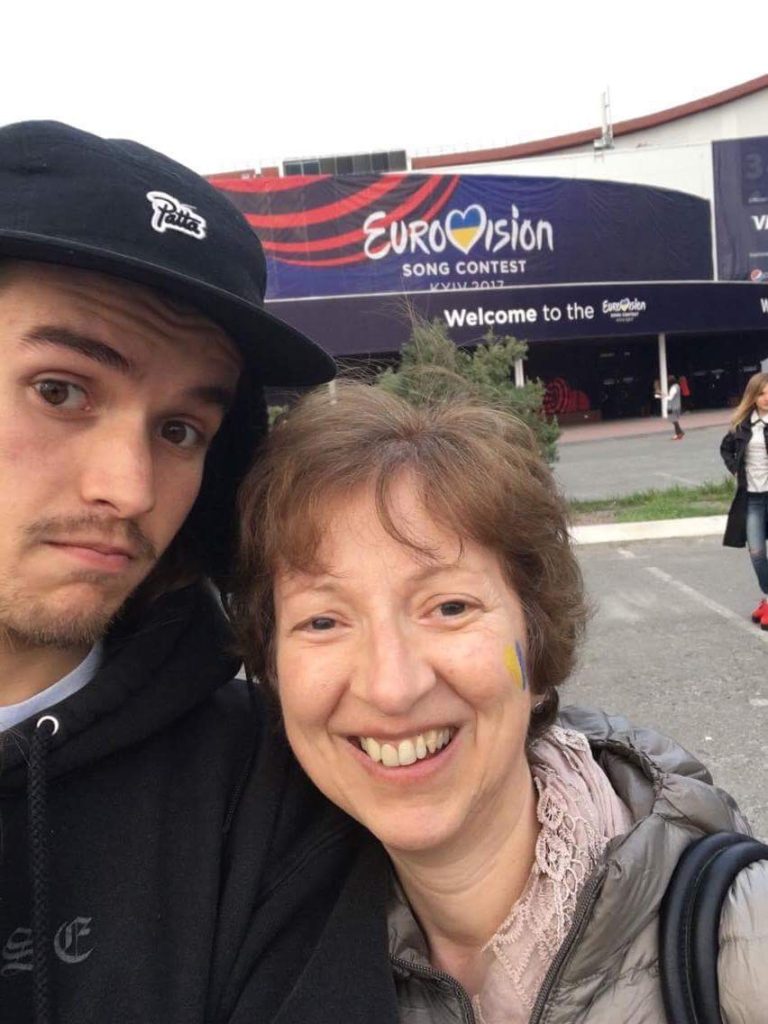
Could you share some travel stories with us, the ones that stay deep in your head and heart?
In 2002 I made my first visit to India after a friend introduced me to Prem James who made a casual comment that I was welcome to visit anytime. Prem & Rita’s home in Bangalore was also home to Asha Kiran Special Needs School. I will never forget that first morning when 70 children plus teachers arrived for school.
My bedroom door opened into a classroom and every corner of the house was being utilised, you could open what seemed to be a cupboard & there were 6 children and a teacher in there! Rita had started tutoring a friend’s son who was deaf in their converted garage and gradually more and more children with a whole range of special needs came. In India the education system is very old-fashioned, one teacher in front of 40+ children and no provision for those who can’t keep up.
For those with more challenging special needs there may be no provision at all. The need was great but Rita was determined to identify the God-given gifts of every child and enable them to become contributing members of society. I had no idea then that this was the start of a relationship that would span almost 20 years to date.
I had no specialist skills but I had a friend who worked with puppets and I had done some basic training with her & taken along a few puppets. One day I entered a classroom and a girl was curled up on the floor in the corner making distressing noises.
The teacher said she had been like this all morning and nothing was helping. I said, “Let’s try a puppet” & fetched a little bear. Within a few minutes, the girl had quietened, was making eye contact with the bear and started to speak to him. It wasn’t long until the bear ‘asked’ her to sit up and finish her work and she readily complied. This miraculous encounter was a pivotal moment for me.
Over the following years, I brought many teams of volunteers to India (including Jenny & her many puppets). We tailored our work around the skills of our volunteers and included school assemblies, teacher & parent training, painting murals, sports, dancing, music, developing an independent living course and much more. Of course, as with any travel, it is a two-way encounter and the volunteers usually gained more than they gave from the experience.
The need for a purpose-built school building was great. A UK charity and sponsorship scheme was developed to fundraise along with other partners and a beautiful fully equipped four-storey building was eventually opened. Since then a Vocational Training Centre & Girl’s and Boy’s Hostels have been added. It was a privilege to celebrate Asha Kiran’s 25th anniversary in 2018.
In 1982 I was backpacking around Canada with a friend from university. We arrived in Victoria, Vancouver Island and began our search for somewhere to stay. We decided on a cheap hostel & found the bus to get there. Onboarding, we told the driver our destination & he replied: “You really don’t want to stay there!” Now we’d been in some pretty dire places so assured him we’d be fine.
He said, “Well I’ll take you for a look & if you want to come back into town it will be free.” As we approached the almost derelict place we could see various guys in drug or alcohol-induced states scattered on the steps. OK, so you were right we told the driver. Back in town we reluctantly tried the more expensive YMCA only to be told it was full & as it was a holiday most other places would be too.
Rather desperate now we were wandering aimlessly when a car pulled up. It was the bus driver, Jerry, now off duty, he had been worried & came to check on us. When he heard our predicament he immediately invited us to stay at his place. Now this is where most people (especially my mother) would have been sounding alarm bells & would have politely refused.
We however instinctively liked the guy & decided to change it. A few minutes later he walked into his kitchen announcing to his wife Pat “I’ve brought home 2 Irish girls!”. Pat welcomed us with open arms. We were taken out to a posh restaurant for dinner (slightly embarrassing as we didn’t have any suitable clothing & felt very scruffy) and spent the rest of the evening playing Scrabble with them. We stayed a few nights & afterwards Jerry & Pat wrote letters to our parents congratulating them on having such lovely, polite daughters!
My husband Tony & I made a memorable trip to Uganda to visit our friends John & Ali, a young couple with agricultural backgrounds, who were running a goat farm & training program for young people. We mucked in doing whatever we could. I took on the feeding of a little goat kid who had a massively infected bulging eye & didn’t have much appetite.
Feed times involved clamping the kid under one arm whilst inserting the bottle teat into his mouth & then encouraging him to suck by clamping the other hand around his jaw. The end result was always some milk in the kid but more saturating me. The aroma of stale goat’s milk clung to me for some time. The kid did make a recovery but lost his eye.
We also discovered the delights of grasshopper snacks. All over town, you would see large shiny sheets of corrugated iron set up at an angle with very bright lights shining down on the metal. The power for the lights was siphoned off the overhead lines illegally.
During the hours of darkness the grasshoppers, attracted to the lights, would hit the metal & fall down in a pile on the ground. You could then buy a bucket load, and spend the afternoon pulling off the wings & legs before frying them up with your chosen flavouring as a delicious snack.
We decided to treat John & Ali to a short break and headed to the Bwindi Impenetrable Forest on the western border with DRC for some gorilla trekking. Tony’s knees are bad so he remained in camp, where to his delight there were 4 bars of phone signal, better than anywhere else we’d been in Uganda. Trekking groups are each allocated one gorilla family to find.
The guides have a rough idea of the gorillas’ location but of course, they move around. Our group consisted of a number of extremely fit people who ran marathons & did iron man competitions etc. The terrain was extremely steep, mountainous jungle which the guides hacked through with machetes as we followed behind.
It quickly became apparent that I was the weakest link by a long way! After a couple of hours, I enquired how much longer the gorillas were. One hour I was told and thought maybe I can just do it. After an hour I asked again. Maybe one hour I was told! By this time one of the porters is pulling me along by the hand. Just at the point when I think I can’t go any further we are hushed, the gorillas are nearby.
Of course, when we catch the first magical sight of the gorilla family all my exhaustion disappears and it is amazing. The grumpy silverback turns away and won’t look at us. One of the females whose name means ‘loves humans’ comes up and touches us then brings her baby over. Other mothers and babies frolic, play & munch leaves. An hour passes too quickly and we must leave. The exit route is up a near-vertical slope. Even marathon runners are struggling now.
Suddenly the guides up ahead are shouting. My porter yells at me “Run, Madam. Run!!” He is literally dragging me now. The guys at the front have disturbed a wasp’s nest. These are nothing like our UK wasps, these are huge black things and they are everywhere. The guides and porters are obviously really frightened. The wasps are in our hair, ears, and down our shirts…large flying insects freak me out at the best of times. This is a nightmare.
Somehow we eventually reach the top, lose the wasps and collapse in a clearing. Everyone including the locals has been stung but miraculously I haven’t. Then John pipes up “I’m allergic to wasp stings & I’m starting to feel really ill. I haven’t brought my adrenaline pen” Has anyone got any antihistamines? No. A couple of the guides decide to rush him out as fast as possible.
Minutes after they have gone Ali checks another pocket in her rucksack & to her surprise pulls out a strip of antihistamine tablets. Someone runs after John who takes the whole lot! (he made a full recovery after a couple of days).
The rest of us slowly make our beleaguered way back. We have been hiking for 9 hours.
We learn that the other group left camp that morning made an easy 30 min stroll up a track, saw their gorilla family and spent the rest of the day relaxing. Which story would you rather have to tell?
Not satisfied with one near-death experience Tony & I decided to go white-water rafting on the Nile at Jinja. The choice is mild, wild or extreme. Yes, we choose extreme! These are the largest commercially rafted grade 5 rapids in the world. We’ve done some kayaking and rafting before but nothing like this.
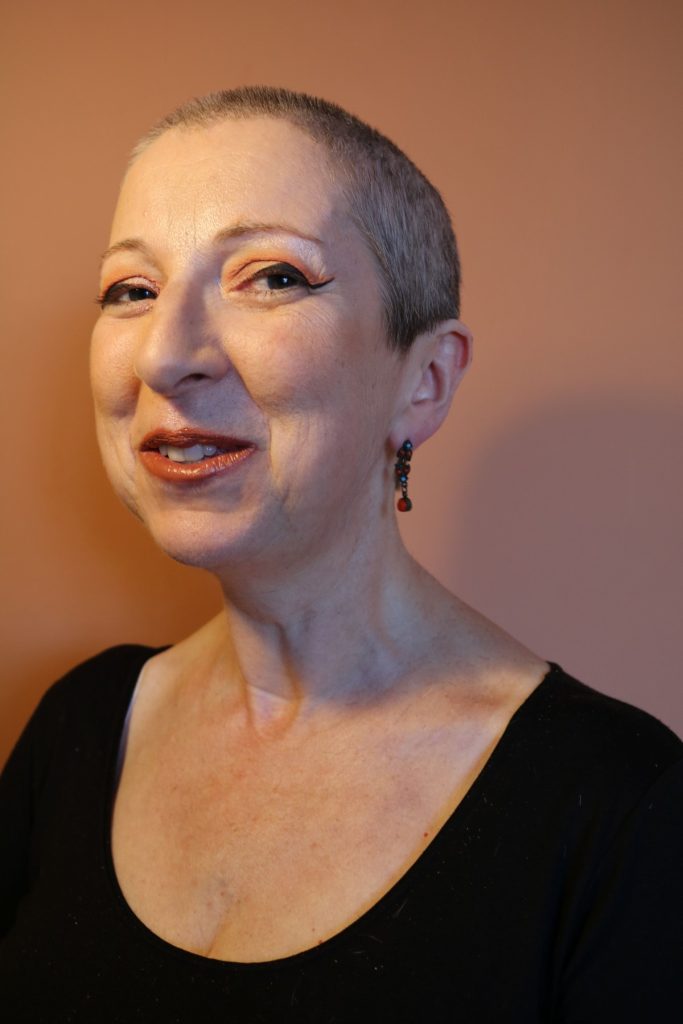
The photograph I’ve enclosed is taken on a rapid appropriately called silver back, which was really more of a waterfall (I am in the middle yellow helmet, Tony behind me. The other three crew are submerged). Amazingly we recovered from this position and did not capsize here. After several more rapids including one named ‘The Dead Dutchman’ we reach Big Brother. Now this was the largest and most daunting of all, a long raging tumult in a narrow gorge.
Of course we flipped. We were submerged & tossed in a washing machine to the point where you are surrounded by bubbles, and have no idea which way is up or when we might breathe again. When it did spit you out there’s only time for a quick gulp of air before it sucks you down again. The life jacket seems pointless.
Eventually, you hope to emerge near enough to one of the rescue kayaks and grab hold. It was exhilarating and terrifying all at once. Soon after our trip, the Isimba Dam project flooded this stretch of the river and all these rapids were lost. It is still possible to have a grade 5 experience at Jinja but just a bit further downriver.
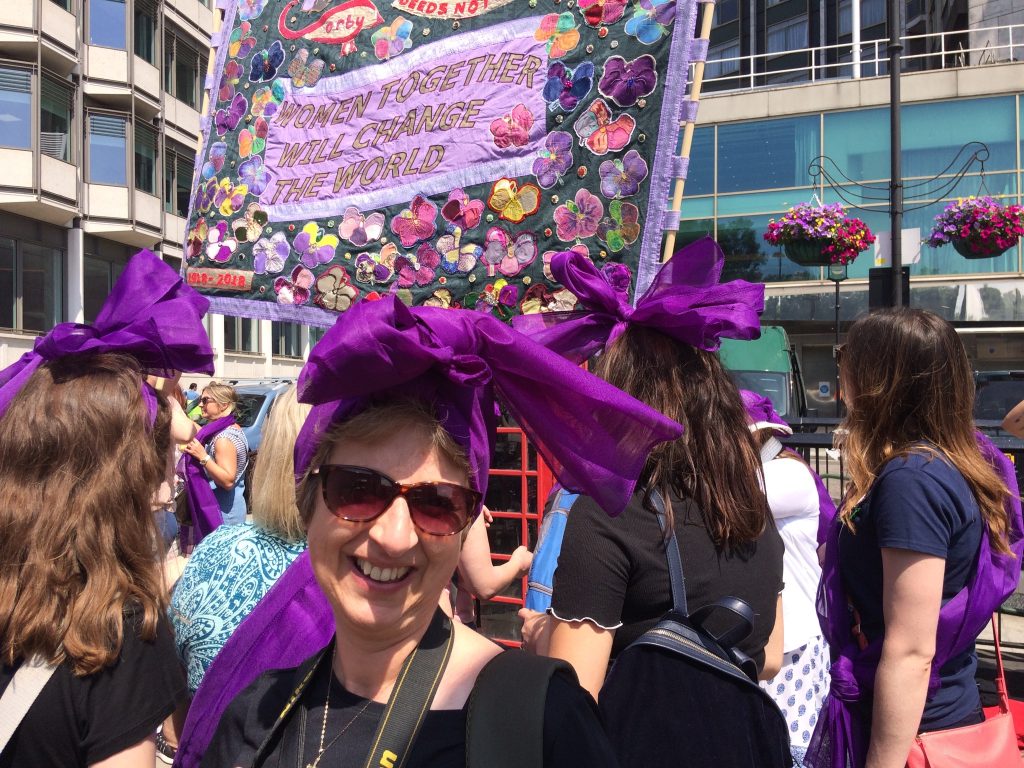
Can you dismiss some popular myth or stereotype about the places you visited?
The most common thing that people say is ‘Aren’t you afraid/worried, especially travelling alone’ There’s an assumption that most people are out to rip you off, mug you or can’t be trusted. Yes, you have to listen to your instincts & not be naive but I have been helped, rescued & shown such kindness & hospitality by so many people the world over. It’s sad that fear holds so many people back from really experiencing other cultures.
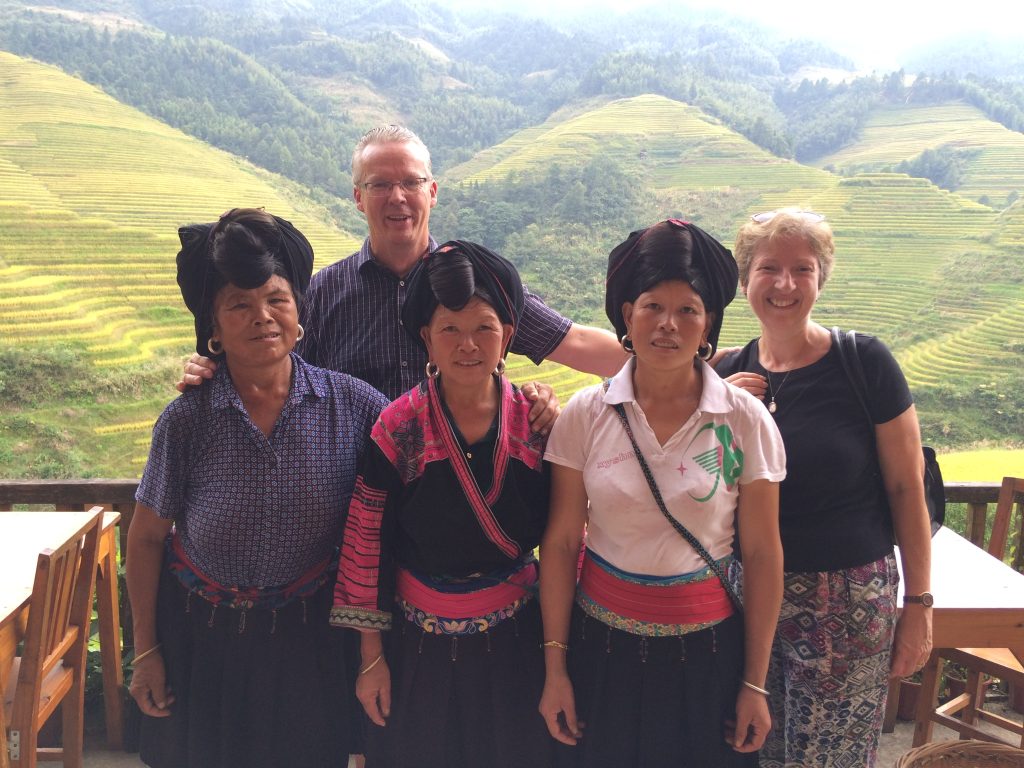
What did change in yourself when you started travelling?
When I was 18 my parents were concerned that I was considering going to university in England (how would a shy little Irish girl cope in such a big city etc) So I stayed in Belfast to study pharmacy at Queen’s University. However, the aforementioned wanderlust gene wasn’t going to be dampened that easily. In the summer of 1981, I went alone to NYC & on to Pennsylvania to work at a camp for underprivileged kids from inner-city Philadelphia.
Now NYC in the 80s was a rather gritty place, where mugging was commonplace & the advice was to look no one in the eye and to definitely not go on the metro or walk in Central Park even in daylight. At the camp, everyone was loud, brash & confident and couldn’t understand my Irish accent! My first batch of campers was a nightmare & I doubted if I would survive the first week. But I stuck with it and as the summer progressed so did my transformation. The quiet girl who lacked self-confidence became louder, bolder & flourished.
I made lifelong friends & returned the next summer too.
Once camp finished a few of us spent a month backpacking: NYC, Washington DC, Chicago, Yellowstone, San Francisco, LA, San Diego, Phoenix, Grand Canyon. We slept in buses, a football stadium, the worst cockroach-infested room, and a homeless shelter. We met many interesting people & many totally crazy people! And I absolutely loved it all!
On returning home my friends & family couldn’t believe that I was the same person and I couldn’t wait to go travelling again.
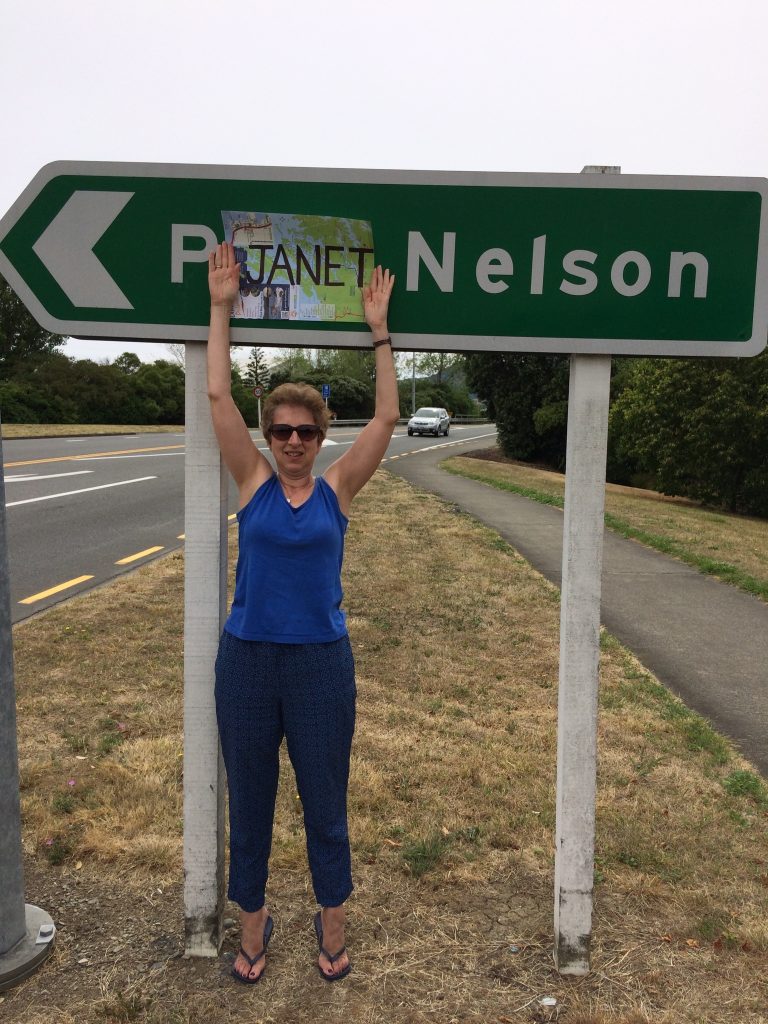
Which culture/country is the closest to your mentality and which is the most alien, and why?
I seem to be chameleon-like and adapt quite quickly to other cultures. The whole topic of cultural orientation is fascinating and I have seen in practice how volunteers can really struggle when the culture they are working in clashes with their own. I always say that India is like my second home.
The positives of Indian culture are the strong focus on family & community rather than our Western individualism, prioritising people over tasks, great hospitality and generally being quite laid back. It’s similar to the Irish culture in many ways. Conversely, it can be difficult to get things done because time is so flexible, no decision is made without taking a consensus and people are very indirect, not wishing to offend.
Any culture where women are not respected or where there is a lack of freedom of speech & choice is alien to me.
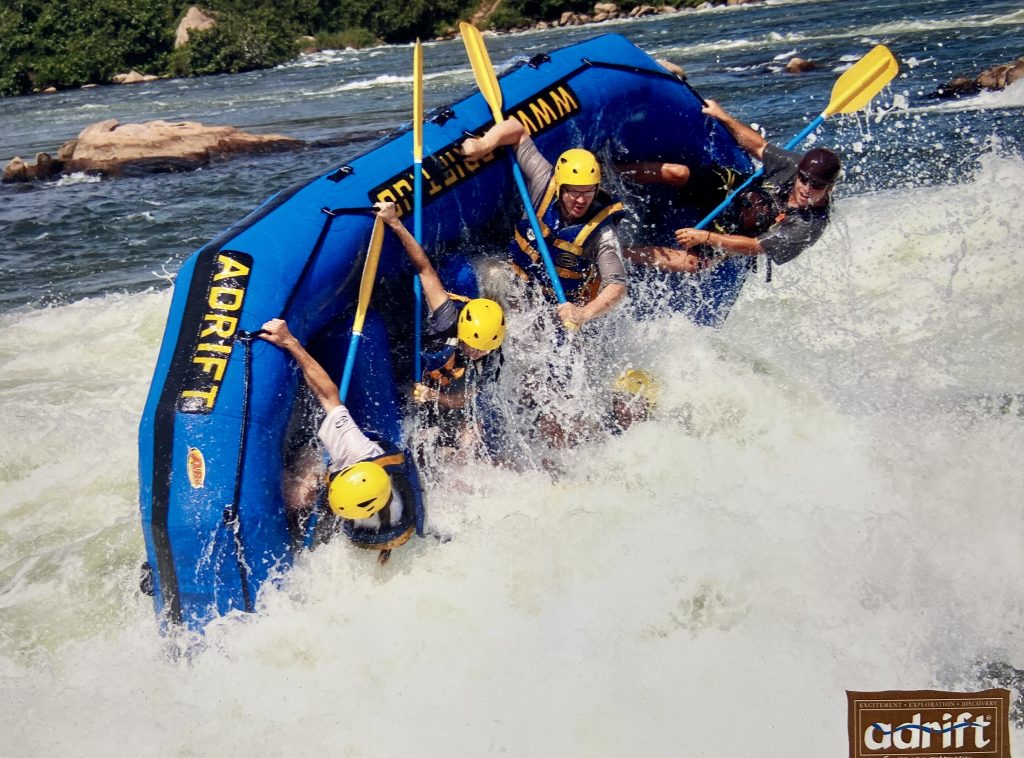
What will be the next country to visit? How do you choose them?
I go to The Gambia in one week. A friend runs an NGO, I heard about this project & having recently retired I was in the happy position of being able to agree to go at short notice. There will be a team of 20 working with a local pastor to provide water filters & training in their use to families in villages.
A trial in Burkino Faso provided the filters to every family in a school and within 2 weeks the absence level from illness had dropped from 25% to 1-2% and families had $10 more per month from increased working days & fewer medical bills. It’s so simple yet life-changing.
Around 2015-6 I set the goal of visiting at least 100 countries and began to be more systematic in ticking them off & not going anywhere I’d already been. I’m now on 69 UN and would love to visit far more, ideally 193!
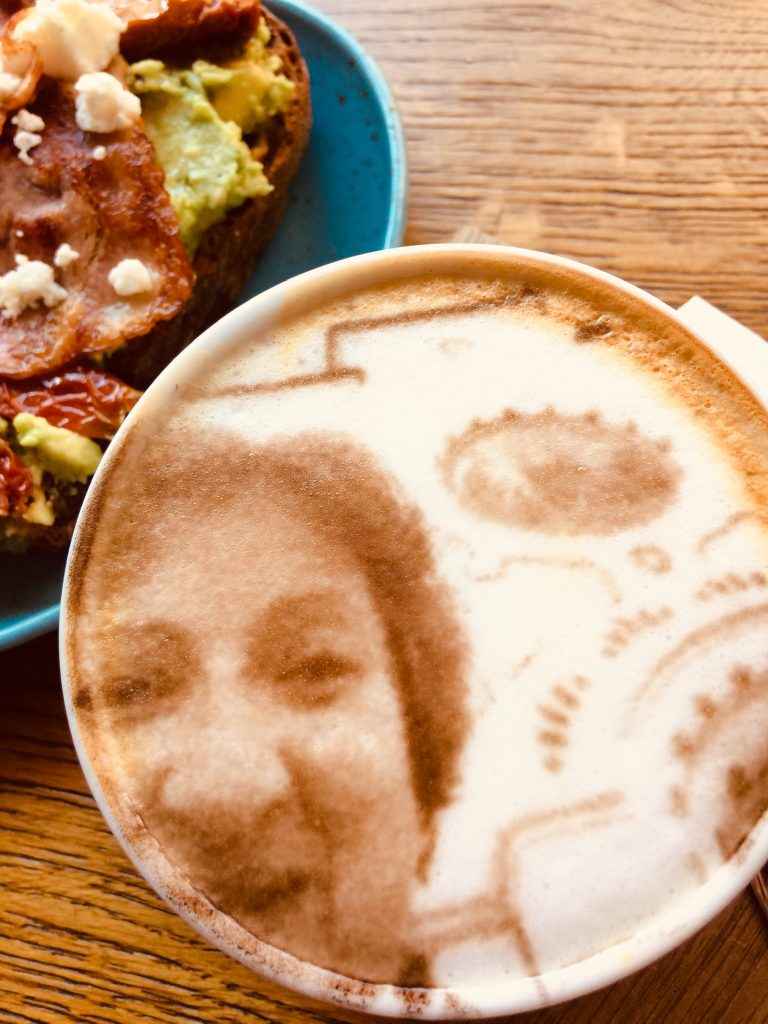
Finally our signature question – if you could invite any 4 people to dinner, from any period in history, who would your guests be?
Amy Carmichael: her story has fascinated me from childhood. Amy was born a few miles from where I grew up and she worked in India for 55 years. She rescued girls & babies who were discarded because of their gender or were given into temple prostitution. On one trip to India, I was visiting an old people’s home when a dear lady told me that it reminded me of her mother. I was rather confused by this but she then went on to say “ I am one of Amy Carmichael’s girls”. It was a hugely moving & humbling experience.
George Mallory: famous for his single-minded focus on climbing Everest “because it was there” and for dying on the mountain in 1924. He always carried a photograph of his family & said he would leave it at the summit. When his frozen body was finally discovered in 1999 the photo was missing. Were he and Irvine the first to reach the summit? I would love to ask him.
Aloha Wanderwell: I recently discovered this inspiring woman & am about to read her autobiography. An explorer, filmmaker & aviator, she was the first woman (in the 1920s) to circumnavigate the globe in a car. Now that’s a serious traveller with some stories to tell!
Mary Lee Bendolph: one of a group of quilters from Gee’s Bend, Alabama. This community and their ancestors have a unique patchwork quilting tradition that has produced some of the most significant works of Afro-American art, displayed in at least 20 leading museums. Many of the Gee’s Benders, including Mary Lee, accompanied Martin Luther King Jr on his march in Camden, AL in 1965. Having taken up quilting during lockdown I am currently experimenting with making one based on one of Mary Lee’s designs.
